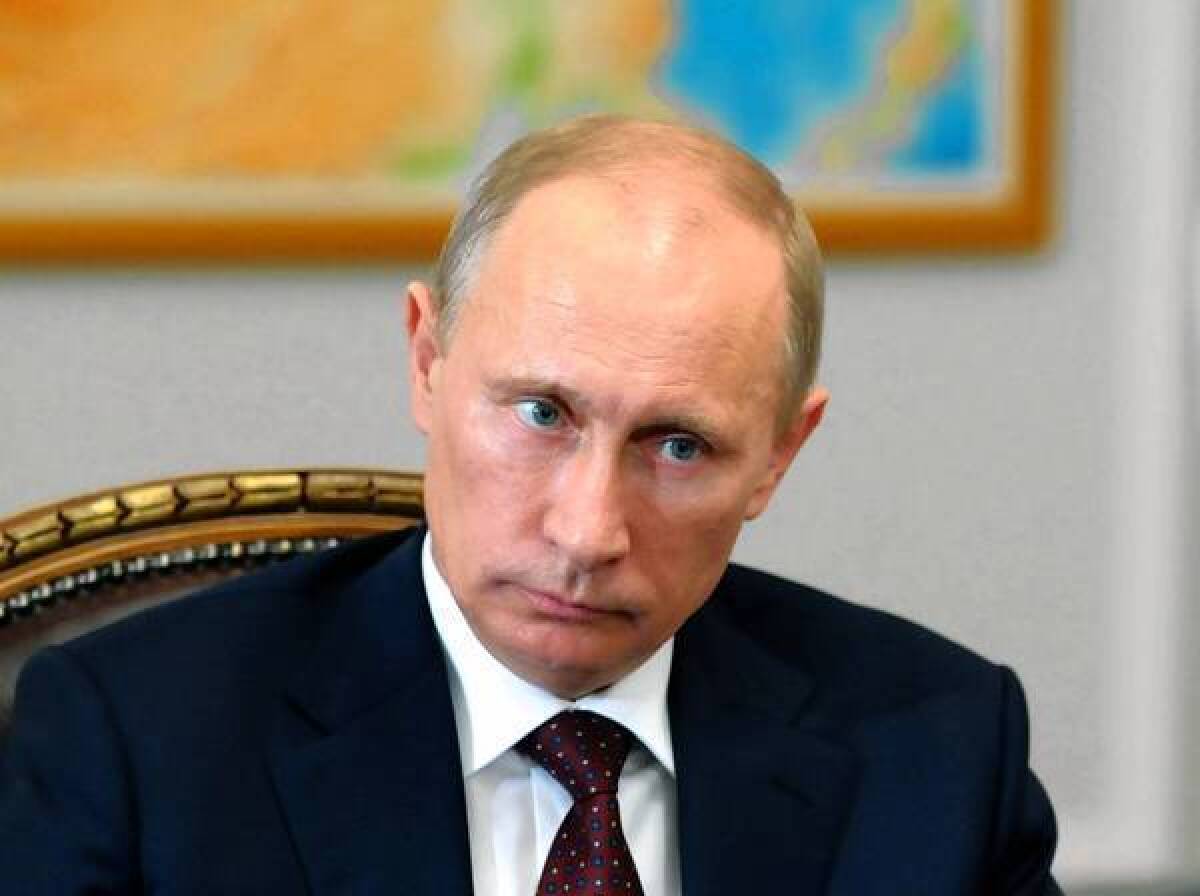Russiaâs lower house OKs curbs on Internet, media and activists

MOSCOW â Russian lawmakers this week passed three measures to increase government control over the Internet, media and foreign-funded activist groups, despite widespread protests from Web professionals, journalists and human rights advocates.
A bill that criminalizes libel and imposes fines of up to $153,400 on violators, and a measure that requires nongovernmental organizations, or NGOs, that receive foreign funding to register as âforeign agents,â were approved by the lower house of the parliament Friday, the last day of the legislative session.
On Wednesday, the lower house unanimously approved a bill that provides for a federal registry of websites that could face being shut down for carrying prohibited material.
The bills are the latest in what is seen as an attempt to crack down on resistance to the rule of President Vladimir Putin, dissent that became more pronounced with mass opposition rallies in December, when Putin was still prime minister.
The measures must still be approved by the upper house and signed by Putin, who in May began his third presidential term, but both moves are expected by the end of the month.
Lyudmila Alekseyeva, a Soviet-era dissident who heads the Moscow Helsinki Group, an influential rights group that receives grants from abroad, called the NGO bill âdespicableâ and said her group would stop accepting foreign funding.
âI am not a foreign agent. I protect our Russian citizens, their rights, from the Russian government and officials,â Alekseyeva said. âThey want to stop the activities of independent human rights organizations.â
Critics of the bill had argued that its goal was to pressure already small and hard-pressed activist groups to reject contributions from overseas or lose credibility by acknowledging working with a foreign government. Russian officials had accused Western governments of trying to influence parliamentary elections in December by aiding election monitoring groups.
Journalists with leading Russian news organizations picketed outside the State Duma building Friday to protest the libel bill, holding signs that read âNo to censorshipâ and âIâm against the libel law.â Libel is often used as a way to shut down news organizations that express views at odds with the government, especially inRussiaâsoutlying regions.
Under the third bill, law enforcement authorities could shut down websites that exhibit child pornography or promote drug use and other harmful activities. Critics see potential for abuse.
Russian search engine Yandex, popular blog-hosting site LiveJournal and social networking service VKontakte condemned the bill. Wikipedia shut down its Russian site Tuesday and posted the warning, âImagine a world without free knowledge.â
âThe bill invokes fear of censorship,â said Anton Nossik, founder of Russian LiveJournal, whose media company owns Gazeta.ru, one of the leading online news sources in Russia.
The Internet has become an important platform for the opposition movement because the government controls most television and print media.
The bills follow other government moves to encumber its critics. A recently adopted law sharply increased fines for organizers of unsanctioned rallies and participants. A bill initiated by the ruling United Russia party this week and under consideration in the lower house would crack down on independent volunteers. It would require contracts and official approval for any donated resources or labor to any cause or event.
âThey are afraid of any form of citizen action,â said Ilya Ponomarev, an opposition deputy and member of the Just Russia party.
Devastating floods last weekend in southern Russia brought an unprecedented number of volunteers to the region, which only highlighted the failures of the government amid popular mistrust.
âThe government is trying to scare civic society with all the power it has,â said Sergei Buntman, deputy chief editor of Echo of Moscow radio station, which is often critical of the government.
âBut look how many young people went to Krymsk to help,â he said. âPeople are not sleeping. They are not looking for signals from the government. They are standing up for their rights.â
Narizhnaya is a special correspondent.
More to Read
Sign up for Essential California
The most important California stories and recommendations in your inbox every morning.
You may occasionally receive promotional content from the Los Angeles Times.










